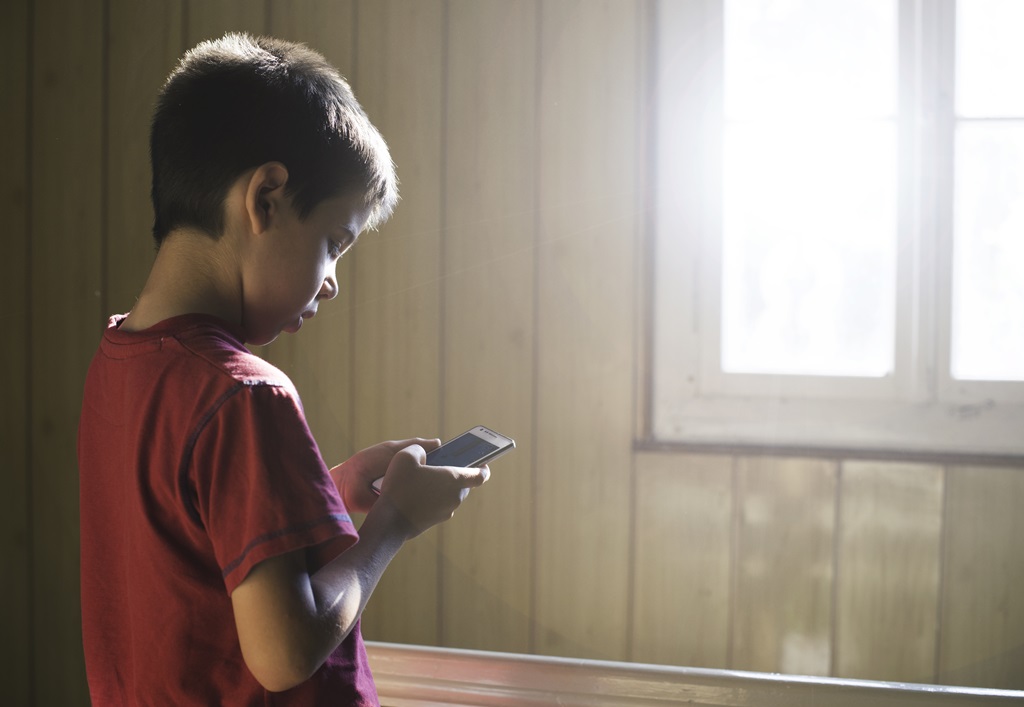- Study Says Most Parents Don’t Use Car Seats In Ride Share Vehicles Like Uber
- This 12-Year-Old Boy Is A Sophomore Aerospace Engineering Major!
- Fire Safety Experts Warn Of Hand Sanitizer Danger After A Mom and Kids Escape House Fire
- Recall Alert: Peaches May Be The Cause Of Salmonella Outbreak, 68 People Ill
- Summer Vacation In The Days Of COVID: Tips To Stay Safe
- How To Safely Grocery Shop During The Coronavirus Pandemic
- Michigan Teen With Vape-Related Illness Undergoes Double Lung Transplant
- Teen Kicks Off Anti-Vaping Campaign From Hospital Bed
- Teenager Receives Life Sentence For Strangling Sister To Death Over A Wi-Fi Password
- Toddler Falls To Death From 11th Deck of Cruise Ship
Screens Are Turning Kids Into Digital Junkies


A recent article by Dr. Nicholas Kardaras for the New York Post, paints a very disturbing picture of how iPads, smartphones and Xboxes are digitally drugging our children.
Although there are many educational and creative play benefits of screen time for little eyes, there are just as many negative effects that go along with it.
Kardaras says “Many parents intuitively understand that ubiquitous glowing screens are having a negative effect on kids. We see the aggressive temper tantrums when the devices are taken away and the wandering attention spans when children are not perpetually stimulated by their hyper-arousing devices. Worse, we see children who become bored, apathetic, uninteresting and uninterested when not plugged in.”
This is however not the worst part of it, according to Kardaras. He says that these devices are a form of digital drugs. He says “Recent brain imaging research is showing that they affect the brain’s frontal cortex — which controls executive functioning, including impulse control — in exactly the same way that cocaine does. Technology is so hyper-arousing that it raises dopamine levels — the feel-good neurotransmitter most involved in the addiction dynamic — as much as sex.”
Interestingly he makes reference to some famous tech names and he says “There’s a reason that the most tech-cautious parents are tech designers and engineers. Steve Jobs was a notoriously low-tech parent. Silicon Valley tech executives and engineers enroll their kids in no-tech Waldorf Schools. Google founders Sergey Brin and Larry Page went to no-tech Montessori Schools, as did Amazon creator Jeff Bezos and Wikipedia founder Jimmy Wales.”
The article references some alarming statistics:
- 8- to 10 year-olds spend 8 hours a day with various digital media
- Teenagers spend 11 hours in front of screens.
- One in three kids are using tablets or smartphones before they can talk
- 18 percent of college-age internet users in the US suffer from tech addiction.
Scary!
So how do you prevent your child from getting hooked?
“The key is to prevent your 4-, 5- or 8-year-old from getting hooked on screens to begin with. That means Lego instead of Minecraft; books instead of iPads; nature and sports instead of TV.” says Kardaras. He says you should demand that your child’s school not give them a tablet or Chromebook until they are at least 10 years old.
Having honest discussions with your kids as to why you are limiting their screen time also helps.
So what do you do if your child is already addicted?
Kardaras says “Once a person crosses over the line into full-blown addiction — drug, digital or otherwise — they need to detox before any other kind of therapy can have any chance of being effective. With tech, that means a full digital detox — no computers, no smartphones, no tablets. The extreme digital detox even eliminates television.”
“The prescribed amount of time is four to six weeks; that’s the amount of time that is usually required for a hyper-aroused nervous system to reset itself. But that’s no easy task in our current tech-filled society where screens are ubiquitous. A person can live without drugs or alcohol; with tech addiction, digital temptations are everywhere” he added.








0 comments